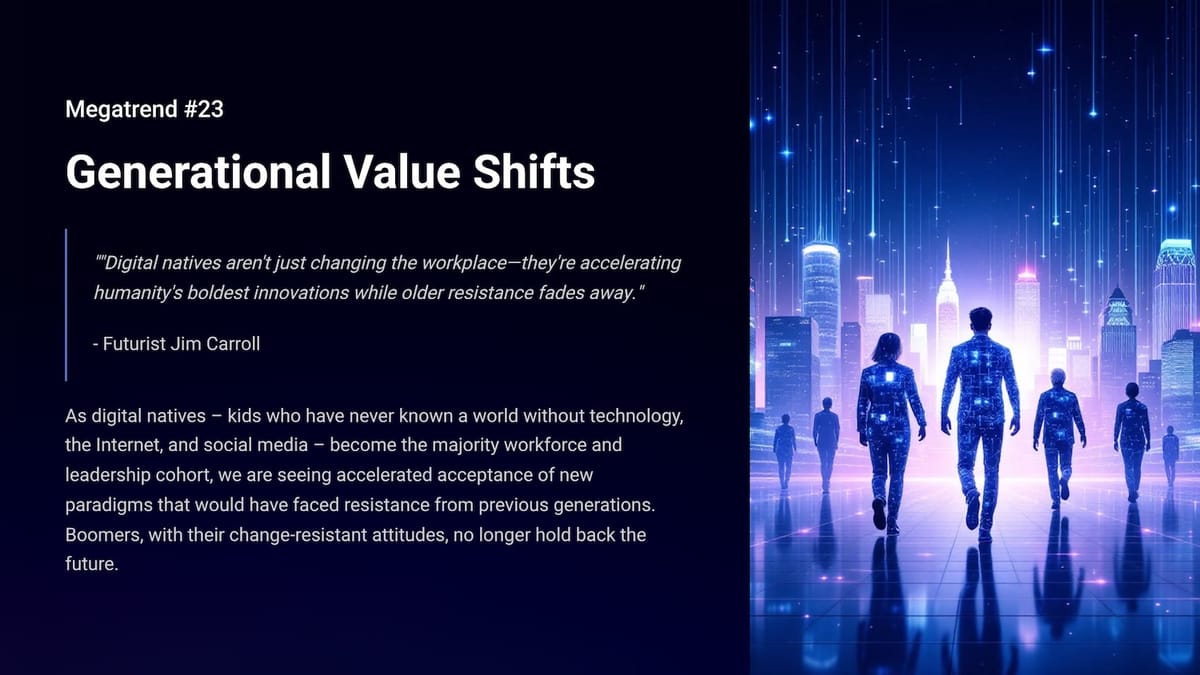"Digital natives aren't just changing the workplace-they're accelerating humanity's boldest innovations while older resistance fades away." - Futurist Jim Carroll
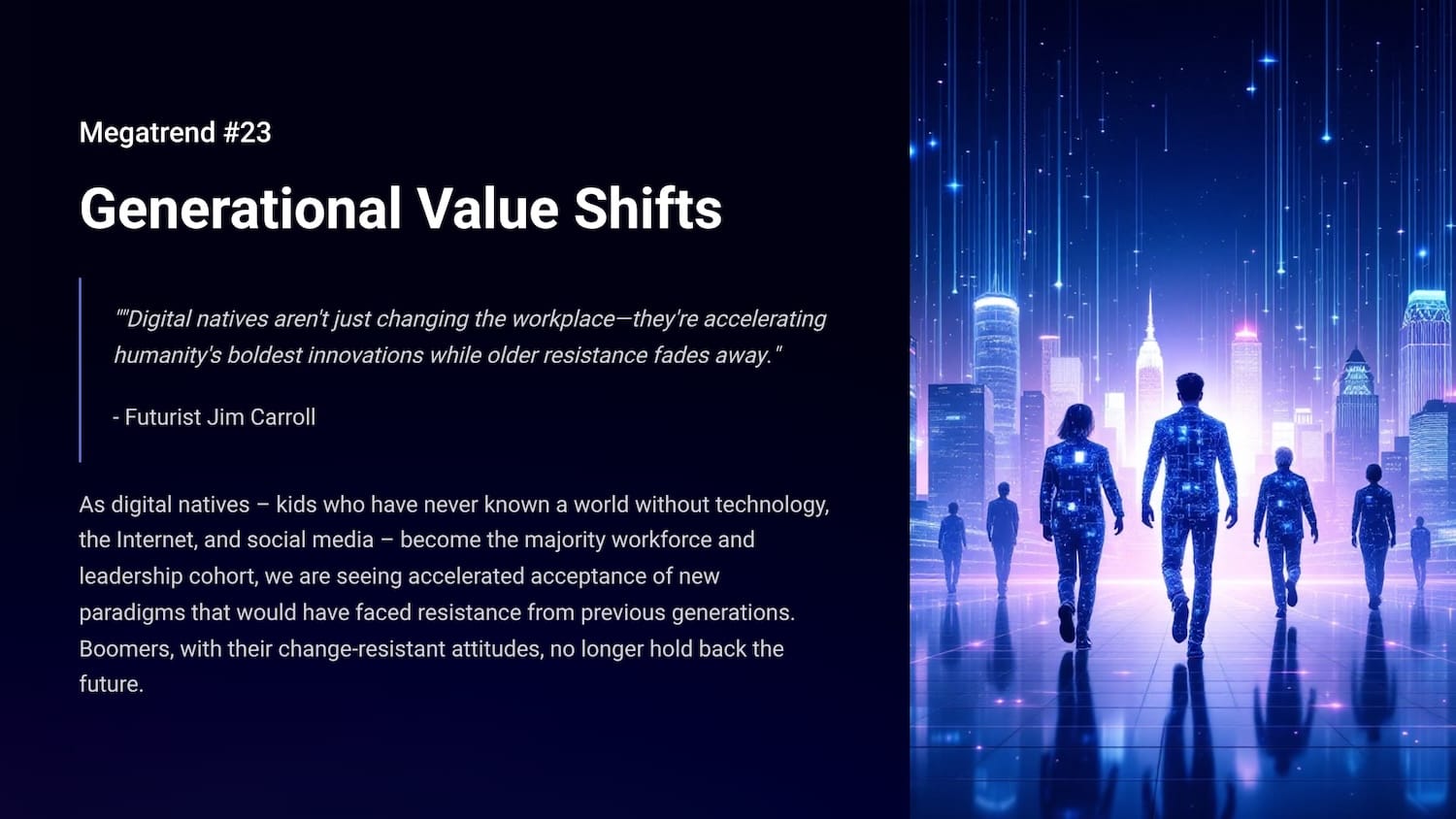
(Futurist Jim Carroll is writing a series on 30 Megatrends, which he first outlined in his book Dancing in the Rain: How Bold Leaders Grow Stronger in Stormy Times. The trends were shared in the book as a way of demonstrating that, despite any period of economic volatility, there is always long-term opportunity to be found. The book is now in print - learn more at dancing.jimcarroll.com)
As digital natives – kids who have never known a world without technology, the Internet, and social media – become the majority workforce and leadership cohort, we are seeing accelerated acceptance of new paradigms that would have faced resistance from previous generations. Boomers, with their change-resistant attitudes, no longer hold back the future.
"They're not like us." That's the common refrain from most baby boomers and many senior executives today. And that much is true. I've been cognizant of this for a long, long time, often noting that I used to run 'change management workshops.' That is, until a young person came up to me about 20 years ago and said, 'Why can't you people just change already?"
I write the entire theme of generational transformation as one of THE major trends in my book Surviving the Information Age, noting the breadth and scope of what might happen once the first change-embracing generation took over the world. We're smack dab in the middle of that trend now - but in fact, we've only just begun to see its implications. With that in mind, I bring you The Great Generational Transformation: How Digital Natives are Reshaping the Global Economy (2025-2035). The full PDF report is here.
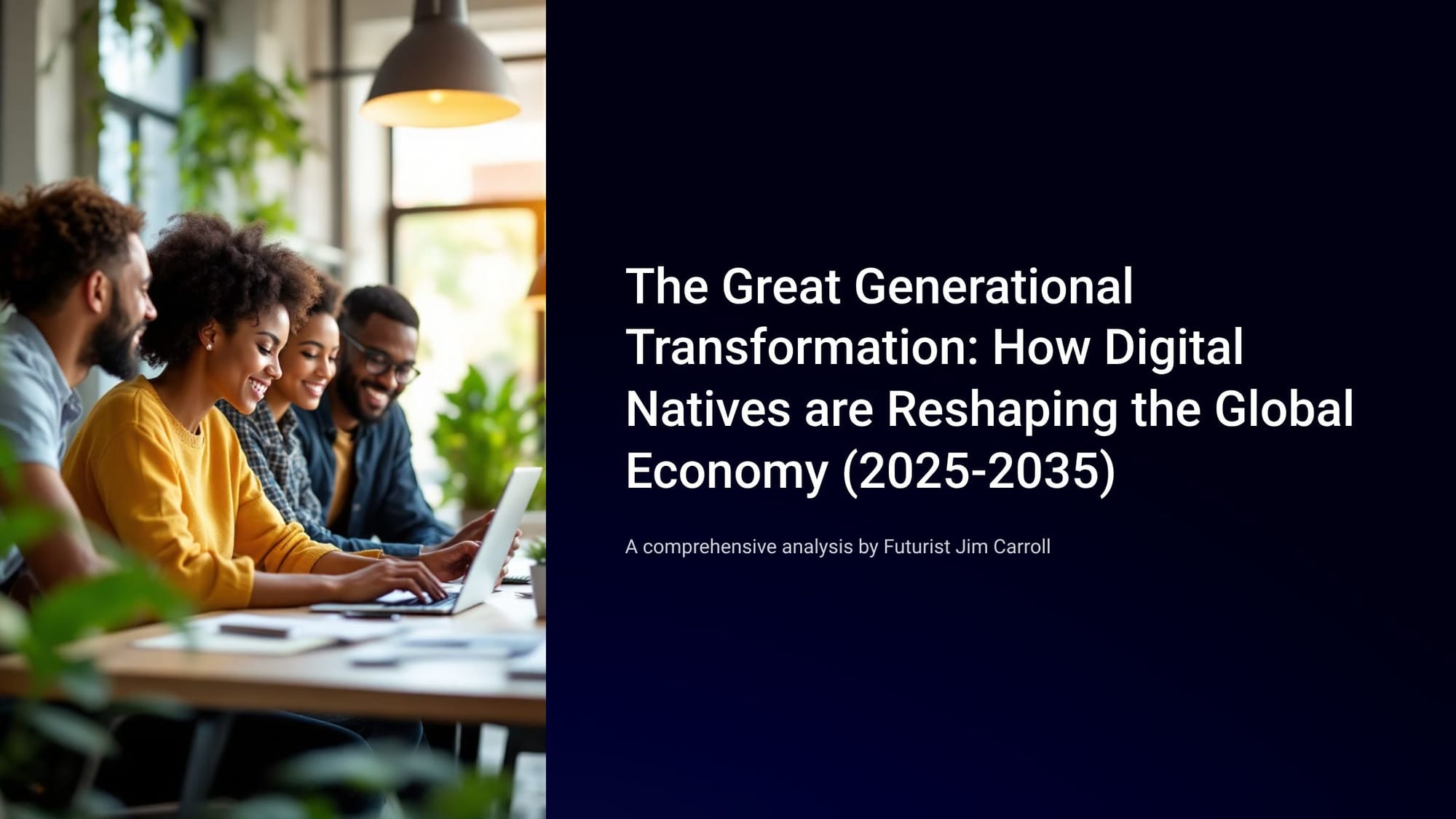
What's up? The decade between 2025 and 2035 will mark a fundamental and irreversible transfer of economic, cultural, and operational power within the global workforce. The boomers, with their resistance to change ingrained in many of their mindsets till the end, are finally leaving the workforce, and you people are taking over. And as these digital natives—Millennials and Generation Z—transition from workforce participants to the leadership cohort, they are driving a great rebalancing that will restructure the global economy in massive ways!
This transformation, occurring simultaneously with the adoption of artificial intelligence, mounting climate pressures, and geopolitical realignments, creates a perfect storm of change that demands immediate strategic response from global organizations.
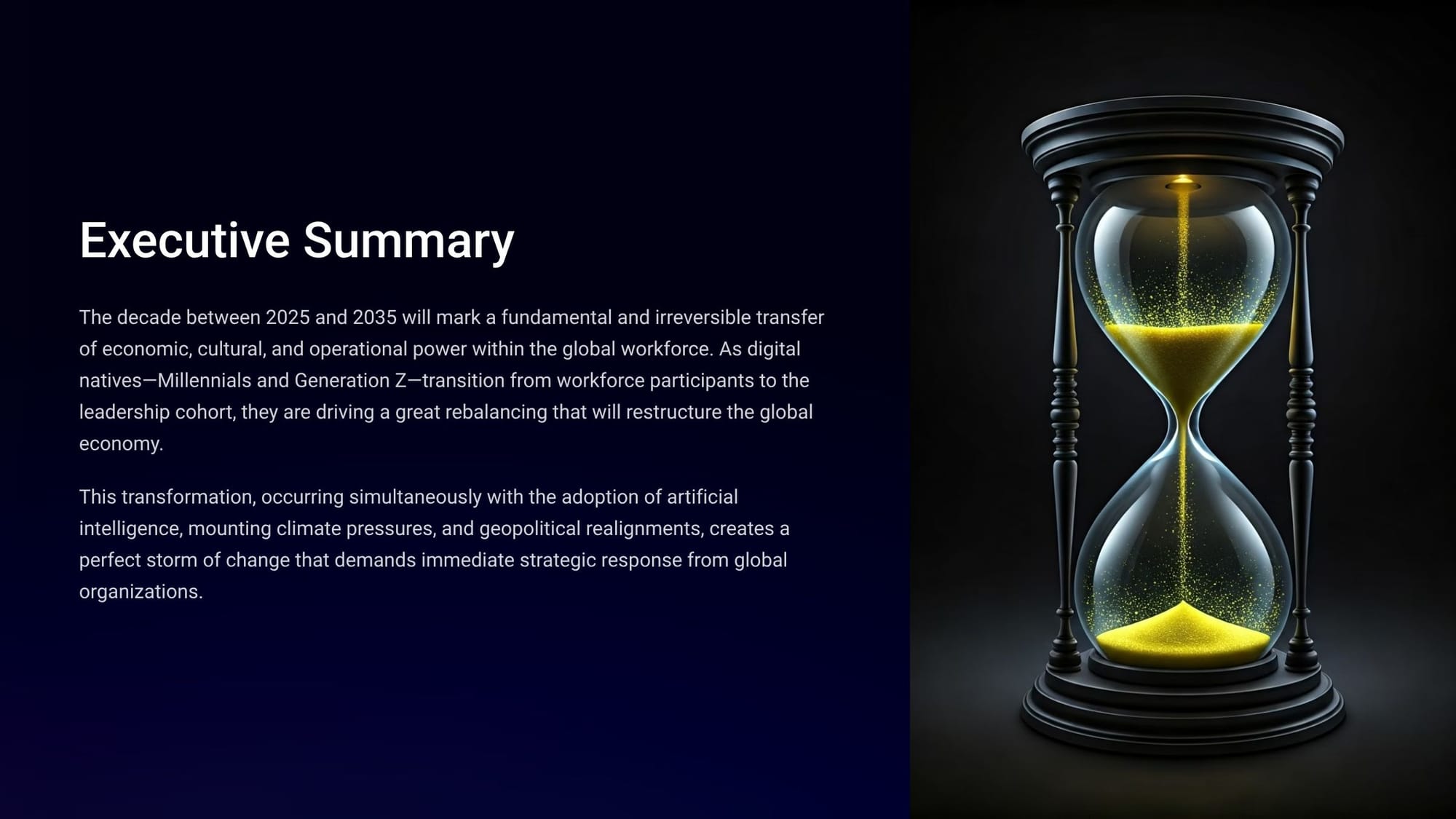
It's a perfect storm of change:
- Demographic Shift: By 2030, Millennials and Gen Z will comprise 74% of the global workplace.
- New Work Contract: Financial stability, purpose-driven work, and non-negotiable focus on flexibility and well-being.
- Global Restructuring: Fundamental restructuring of global innovation ecosystems and talent flows.
- Technology Acceleration: Digital natives expect a seamless, consumer-grade technological experience in the workplace.
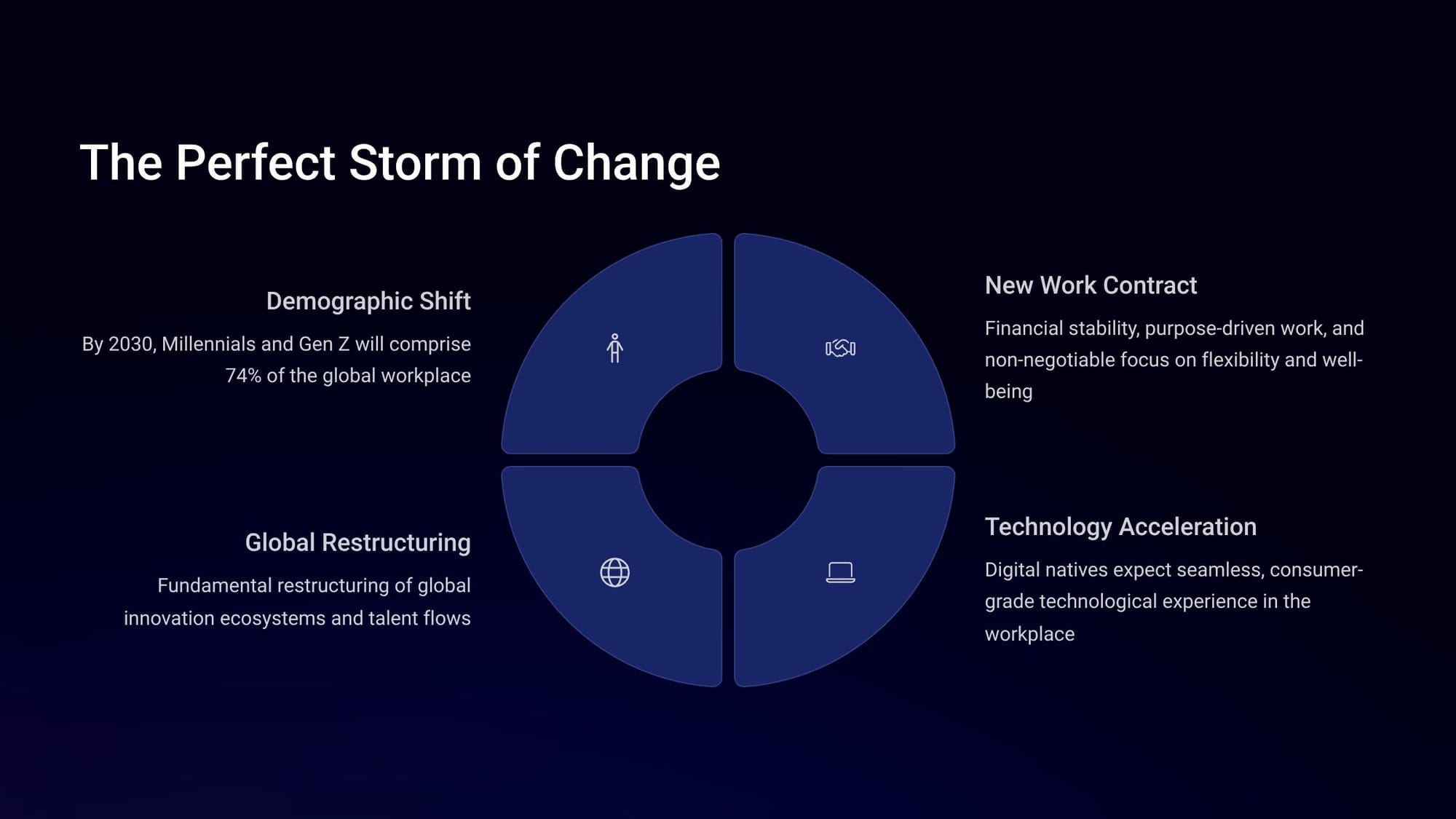
This is all a part of a massive demographic handoff occurring through the next decade.
By 2030, Millennials and Generation Z will together constitute 74% of the global workforce, representing the largest generational workforce shift in modern history. This transition represents an irreversible replacement of one dominant worldview with another, where corporate cultures designed around 20th-century assumptions are no longer fit for purpose.
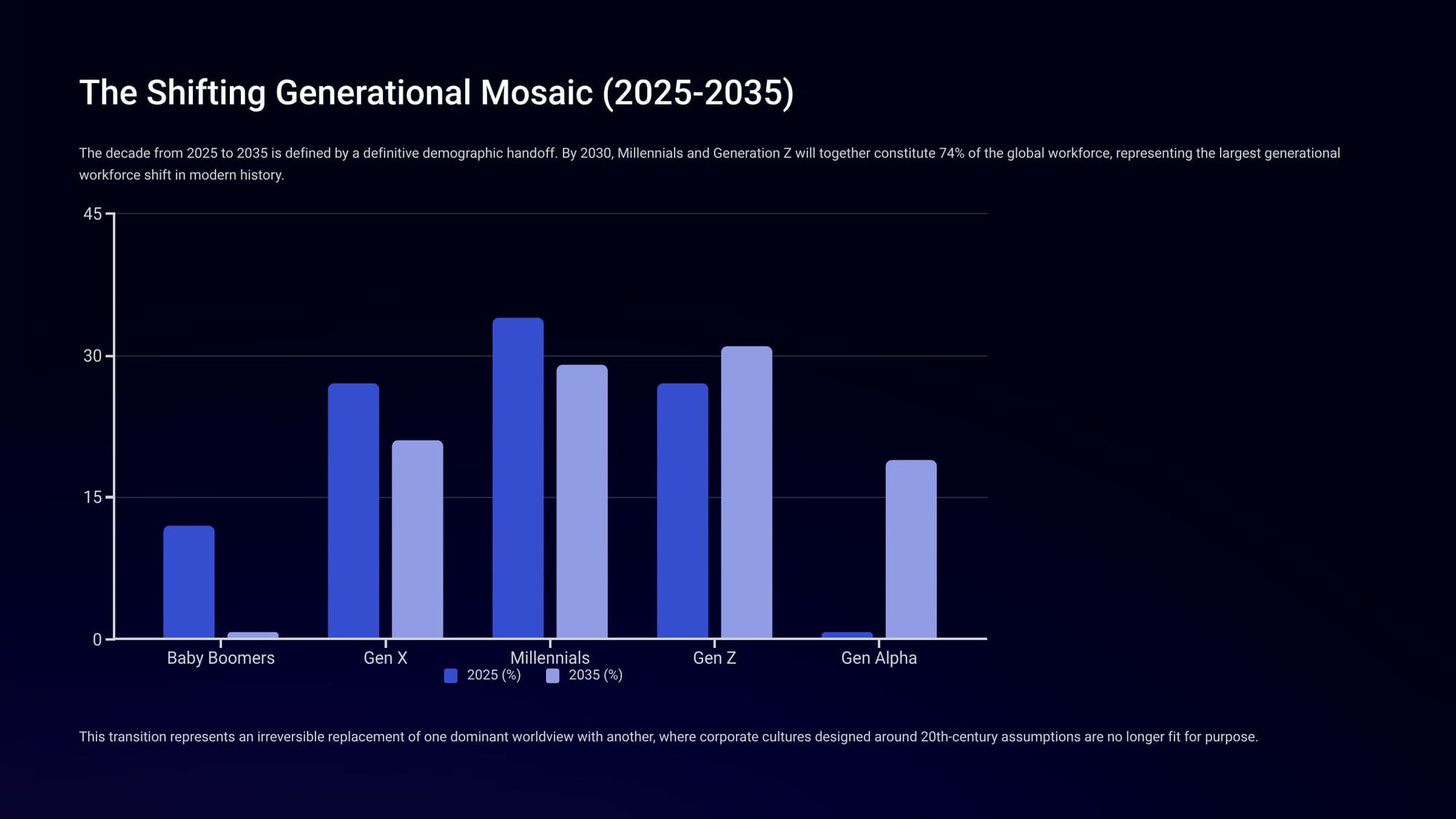
This could lead to, in many situations, the arrival of the Five-Generation Workplace by 2035!
- Gen Alpha: 19% - First wave entering workforce
- Gen Z: 31% - Largest single generational segment
- Millennials: 29% - Established leadership positions
- Gen X: 21% - Senior leadership roles
- Baby Boomers: ~0% - Virtually exited the workforce
But in this workforce, by 2035, Gen Z will ascend to become the largest single generational segment, commanding 31% of the workforce. Why is that important? They've never known a world without technology, the Internet, rapid business change, and so much more.
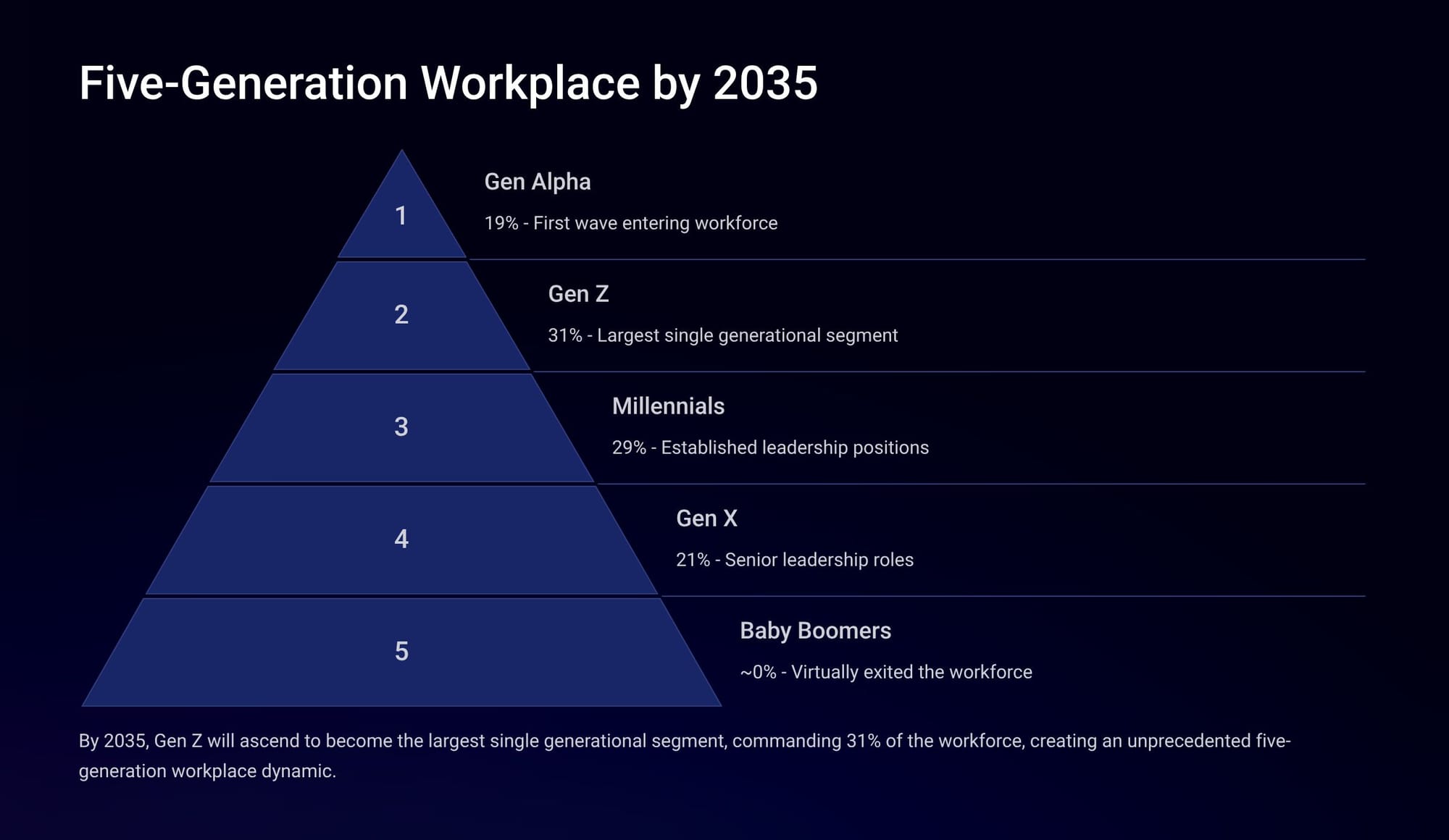
The ultimate impact, though, is that these generations reflect a new workplace contract based on three foundations:
- Financial Stability: Competitive compensation that provides security in an uncertain economic landscape.
- Well-being: 73% of Gen Z employees want permanent flexible work options.
- Purpose: 89% of Gen Z and 92% of Millennials state that purpose is important to job satisfaction.
The 20th-century model of career progression is being replaced by a 21st-century paradigm that demands a different value proposition from employers. I've always explained it on stage this way - rather than ask you what you do for a living, they tend to ask, 'what do you like to do?' That's the 'purpose' part, not something that previous workplace generations tended to focus on.
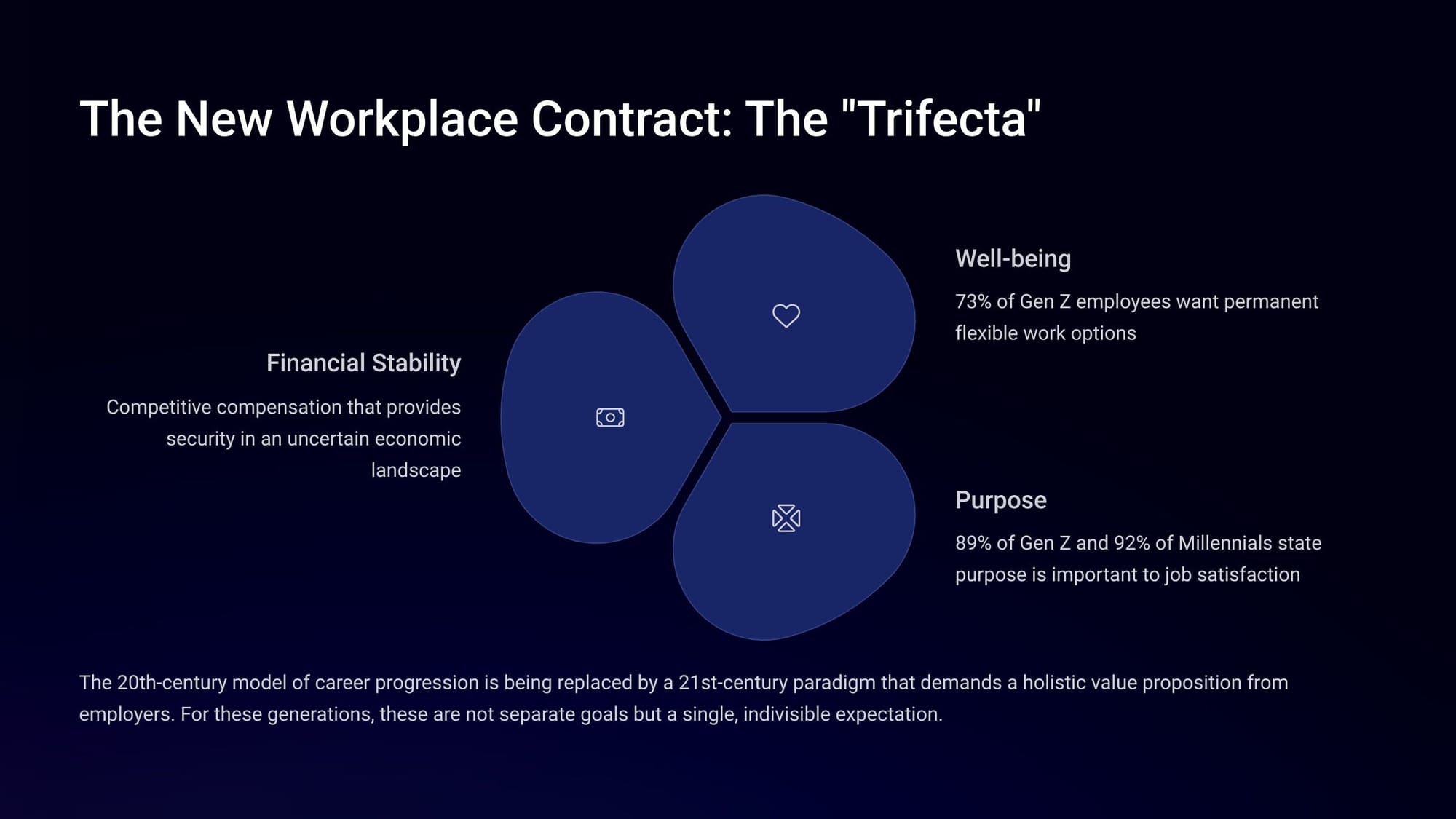
This is leading to a complete redefinition of the idea of 'career ambition.' A mere 6% of Gen Z and Millennial respondents identify reaching a senior leadership position as their primary career goal.
Instead, their focus is on continuous learning and achieving a sustainable work-life balance, which has officially surpassed compensation as the top motivator when evaluating job offers. This dynamic forces organizations to transition from a strategy of “employee retention” to one of “continuous re-attraction,” constantly demonstrating the value of their employee experience.
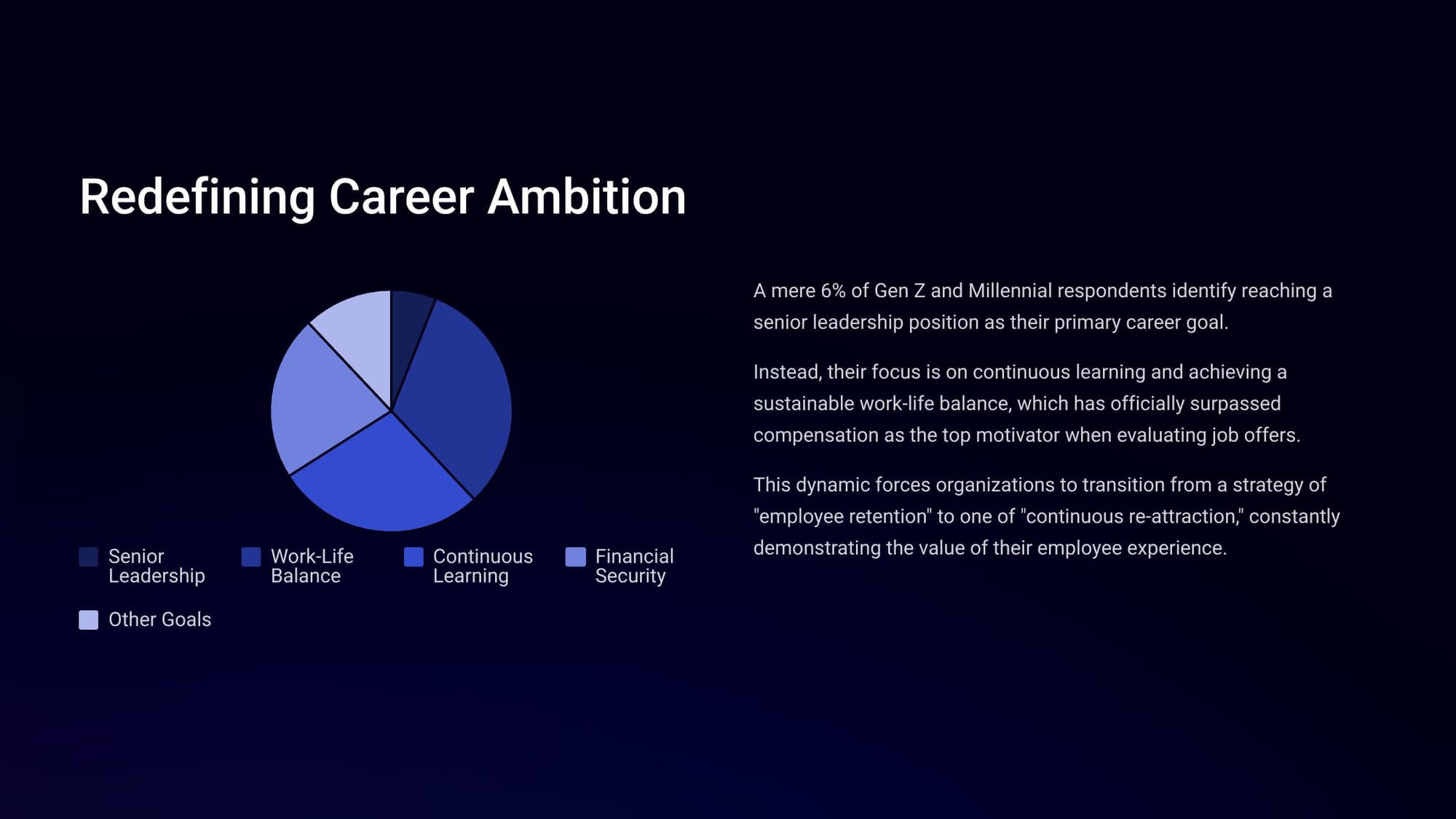
But while championing these high ideals, these digital natives are navigating a global landscape that involves an increasingly precarious and volatile economy. The result? They aren't feeling great about things:
- Nearly half of Gen Zs (48%) and Millennials (46%) report feeling financially insecure.
- This pervasive stress is a primary driver of poor mental health.
- 46% of Gen Z workers in the U.S. participate in the gig economy.
In response, many have adopted the “portfolio career” as a rational economic strategy. They gig a lot, take on part-time roles, and jump from job to job in the chase for stability. This reframes “job-hopping” not as a lack of loyalty, but as a sophisticated risk management strategy learned from witnessing major economic disruptions. Employers must now compete not only with other companies but with the allure of a diversified, autonomous portfolio career.
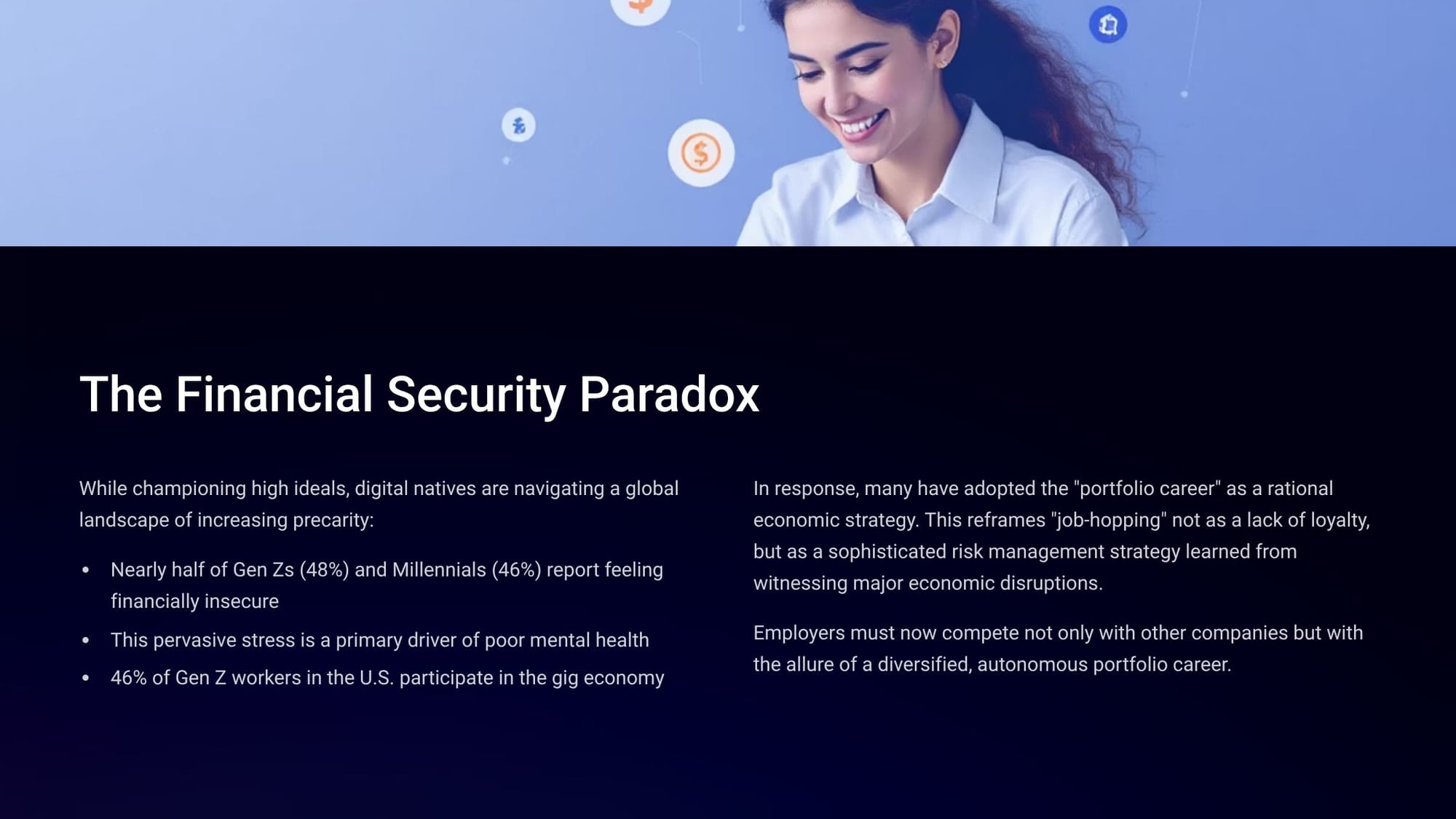
Of course, this new world is arriving at the same time that the juggernaut of AI enters the picture. Most know that a big career change is underway:
- Gen Z Belief: 74% - Percentage who believe GenAI will significantly impact their work.
- Millennial Belief: 77% - Percentage who believe GenAI will significantly impact their work.
- Job Concern: 60% - Percentage worried that GenAI will eliminate jobs, particularly entry-level positions.
The advent of Generative AI represents a new technological inflection point, and digital natives are at the vanguard of its adoption. More than half are already using it, though this enthusiasm is shadowed by anxiety about job elimination.
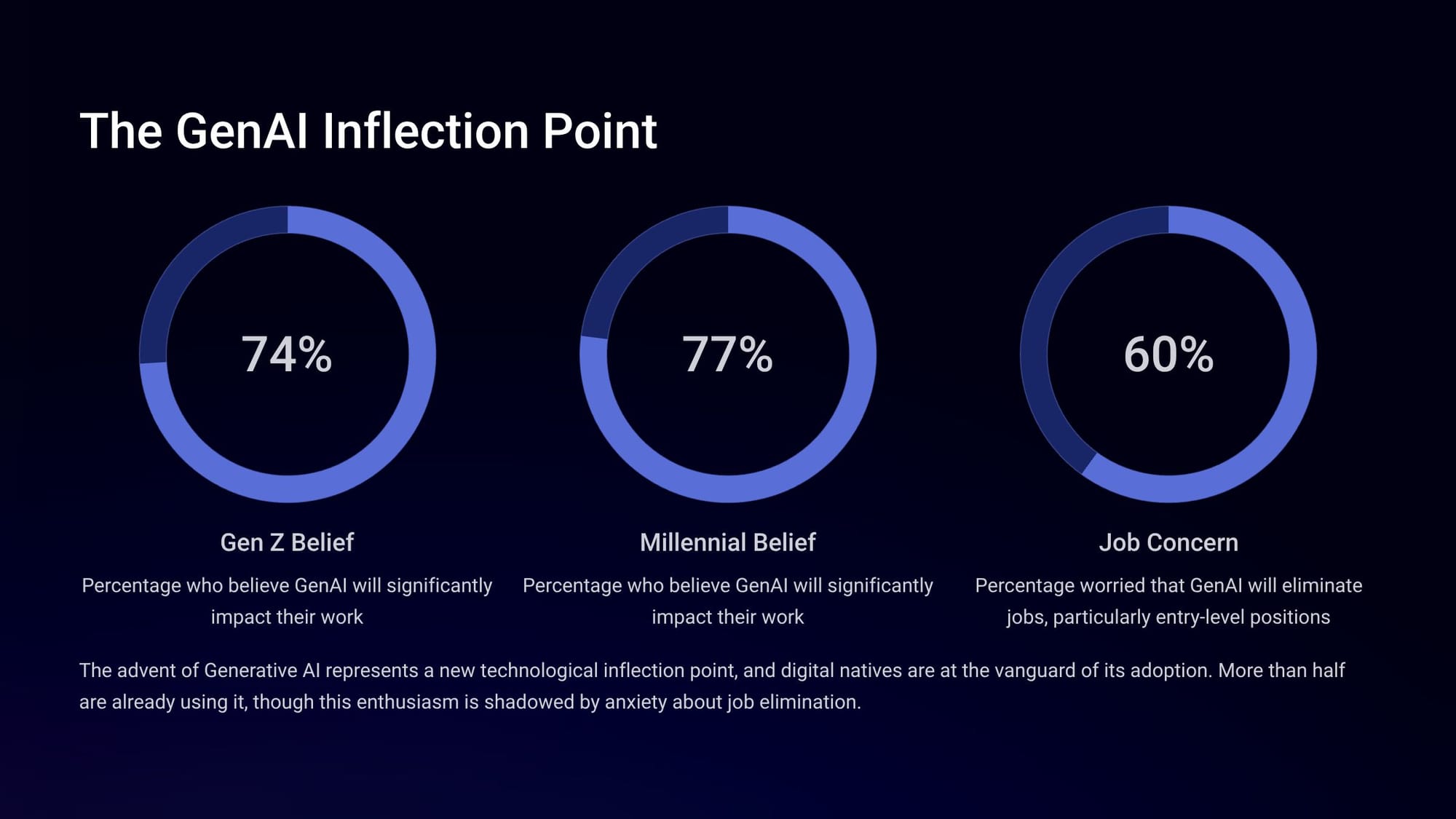
What's the impact? Many know they need to shift from "Knowledge Work" to "Wisdom Work."
- Knowledge Work: Information processing, data analysis, and routine cognitive tasks are increasingly automated by AI.
- Wisdom Work: Ethical judgment, strategic insight, creative problem-solving, and uniquely human capabilities.
As AI automates routine tasks, the premium is shifting to uniquely human capabilities. More than eight in ten Gen Z and Millennial workers believe developing “soft skills” is now more important for their career advancement than technical skills.
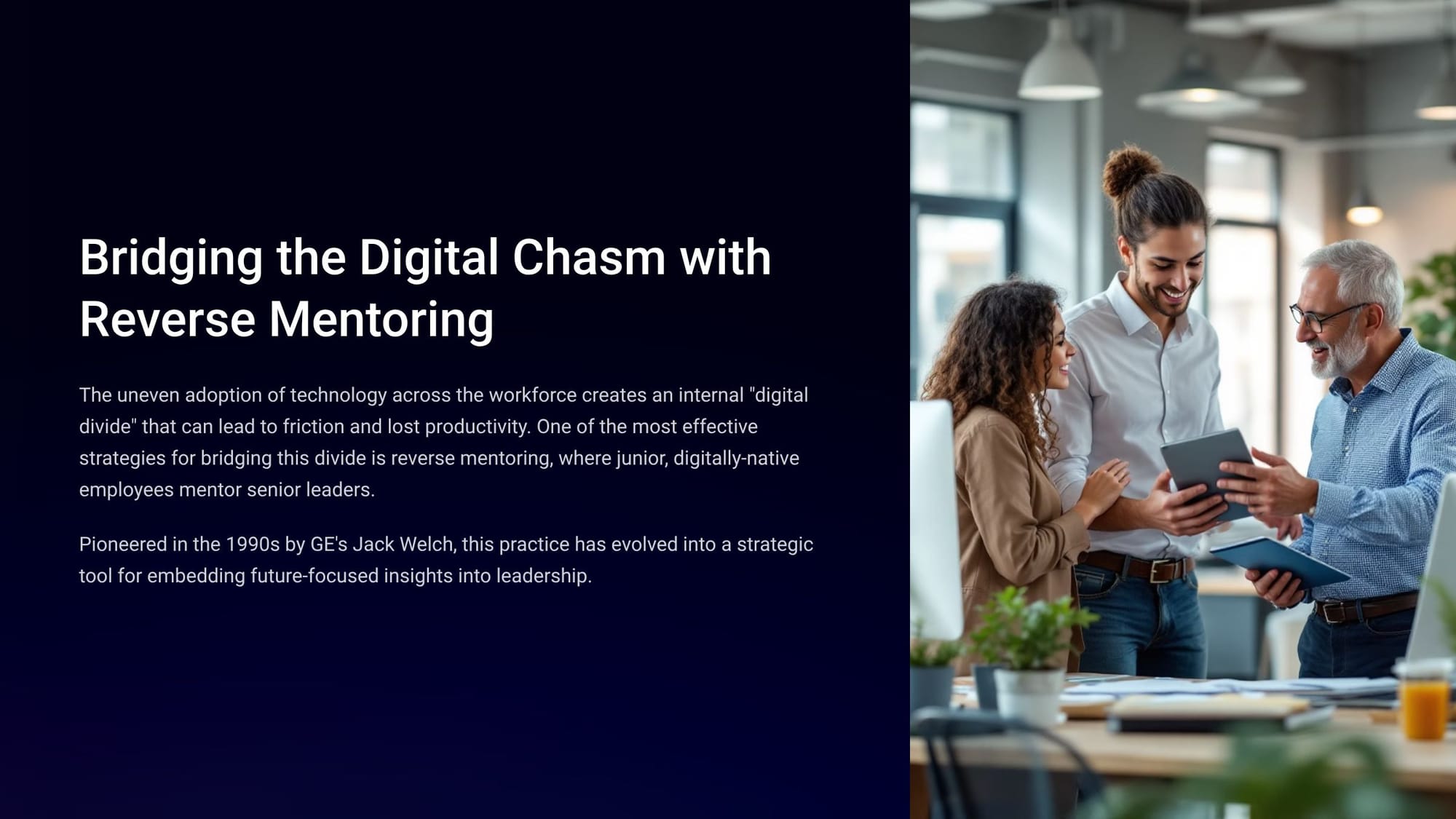
So, how will all this unfold? Some see three waves:
Phase 1: Early Majority Adoption (2025-2027)
- Generation Beta Launches: Born 2025-2039, marking the seventh named generation since 1901.
- Upskilling Programs Prioritized: Organizations invest heavily in developing new capabilities for the changing workplace.
- Financial Insecurity Drives Decisions: Career choices continue to be influenced by the need for stability and values alignment.
This phase establishes foundational changes that will accelerate in subsequent years, setting the stage for more dramatic shifts to come.
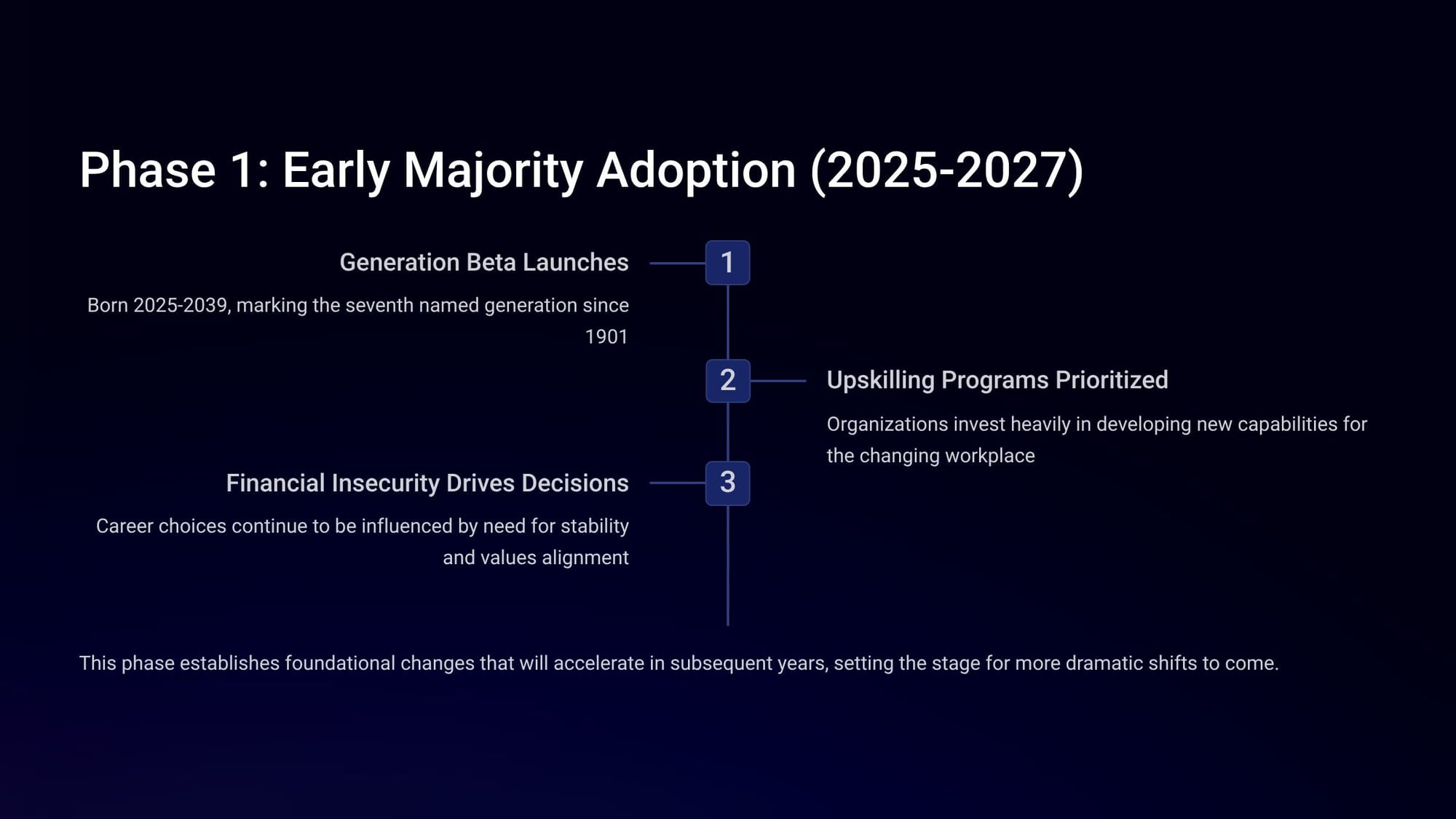
Phase 2: Critical Tipping Points (2028-2030)
- Demographic Inflection Point: 2030 serves as the global demographic inflection point, with all Baby Boomers in developed economies reaching retirement age.
- Intergenerational Wealth Transfer: The great wealth transfer intensifies, shifting economic power to younger generations.
- Automation Impact: Automation is projected to impact 25-30% of work hours in developed economies, requiring millions of occupational transitions.
This period represents the most crucial transformation, with multiple forces converging to accelerate change across organizations globally.
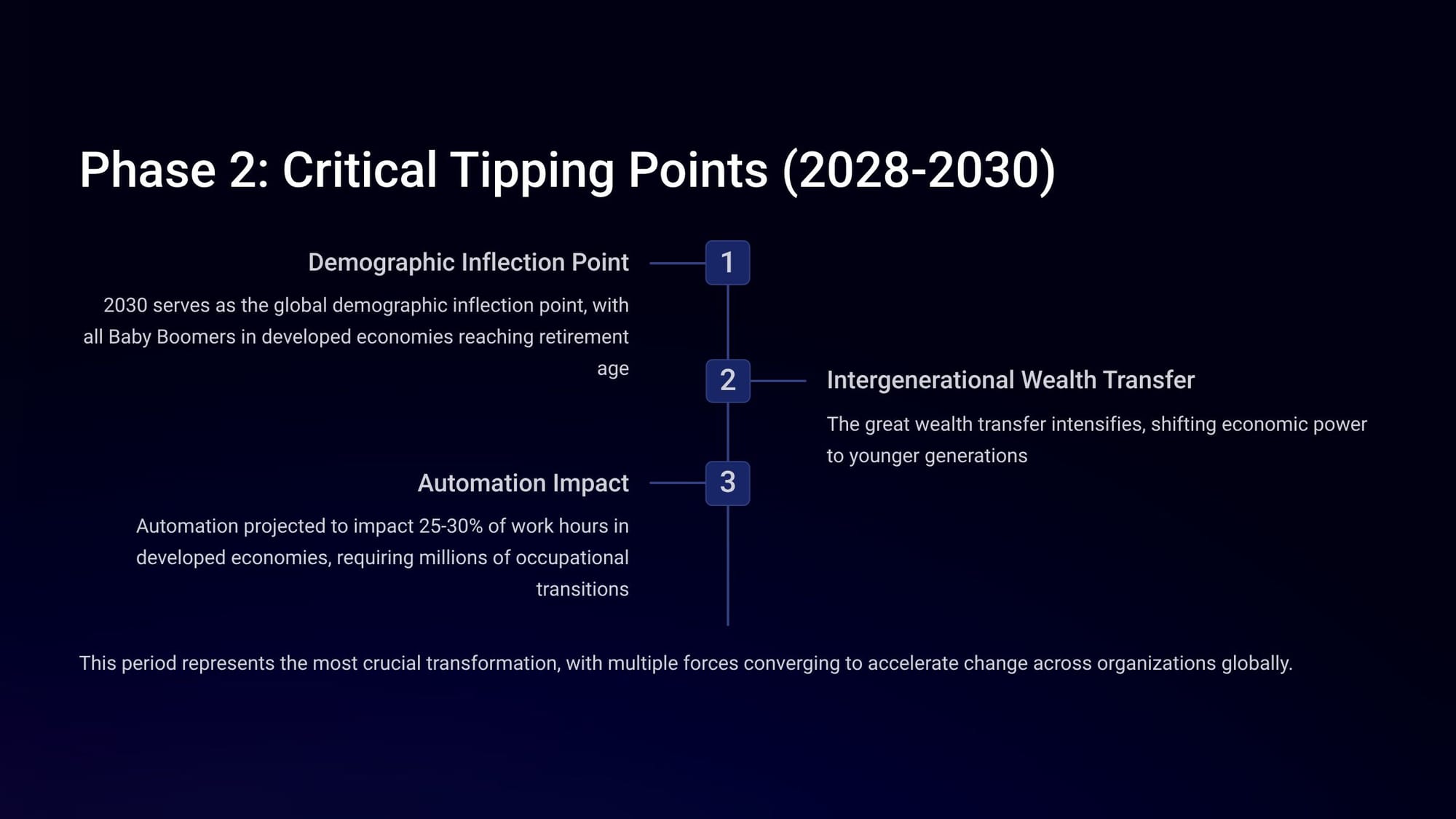
Phase 3: Full Transformation (2031-2035)
- Gen Z Dominance: Gen Z reaches 31% of the global workforce while Gen Alpha emerges at 19%, solidifying a five-generation workplace.
- AI-Human Collaboration Standard: AI augmentation becomes the norm across most knowledge work positions.
- Core Skills Evolution: An estimated 39% of core job skills will have changed from the 2025 baseline.
- Value Systems Consolidate: Sustainability and work-life integration become mandatory organizational standards.
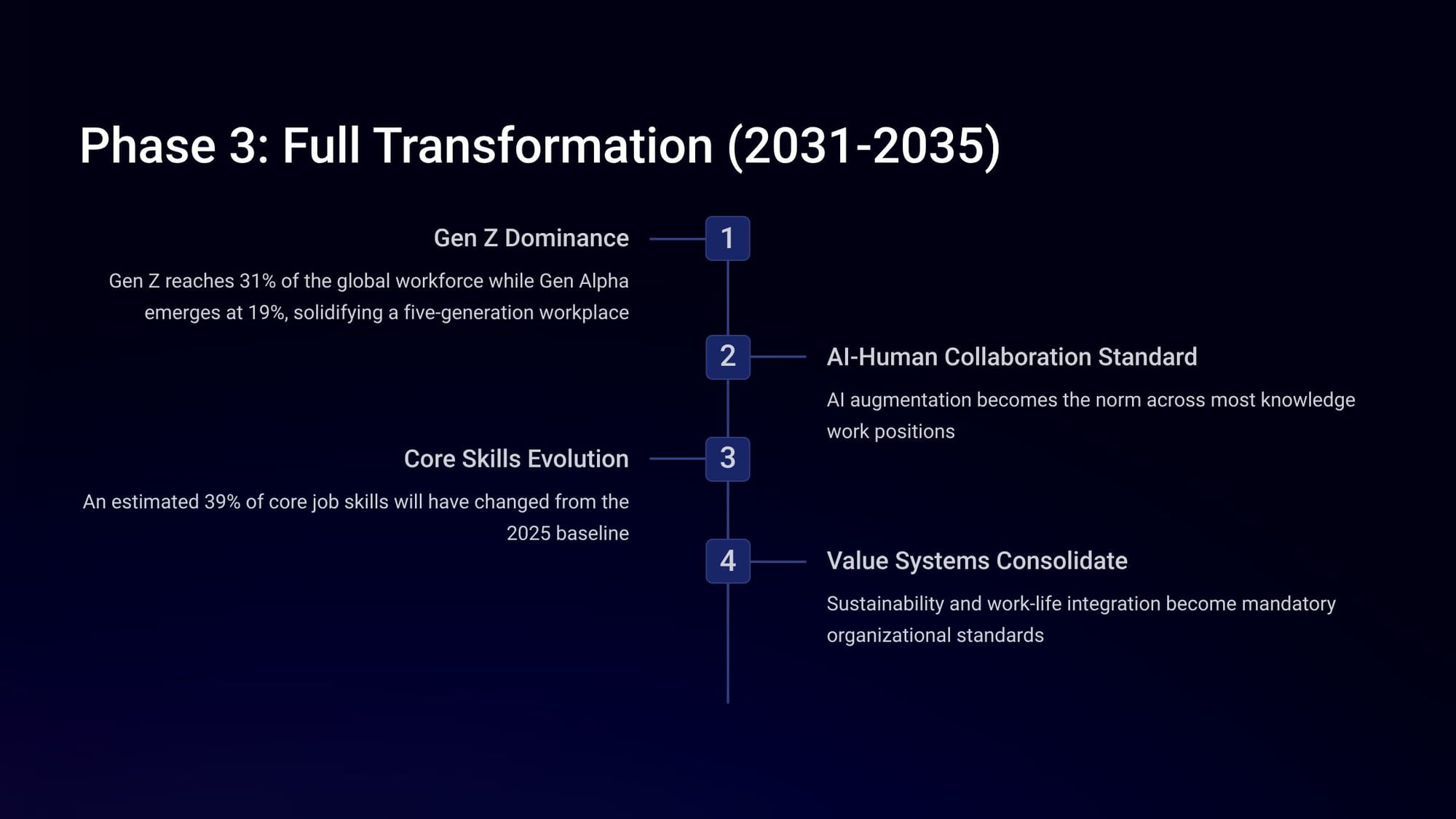
This era of massive generational change doesn't end there - we should anticipate the next wave!
By 2035, the values of Gen Z will be the established norm. And yet, the first cohorts of Generation Alpha—projected to be the most educated and technologically savvy generation in history—will be making their mark.
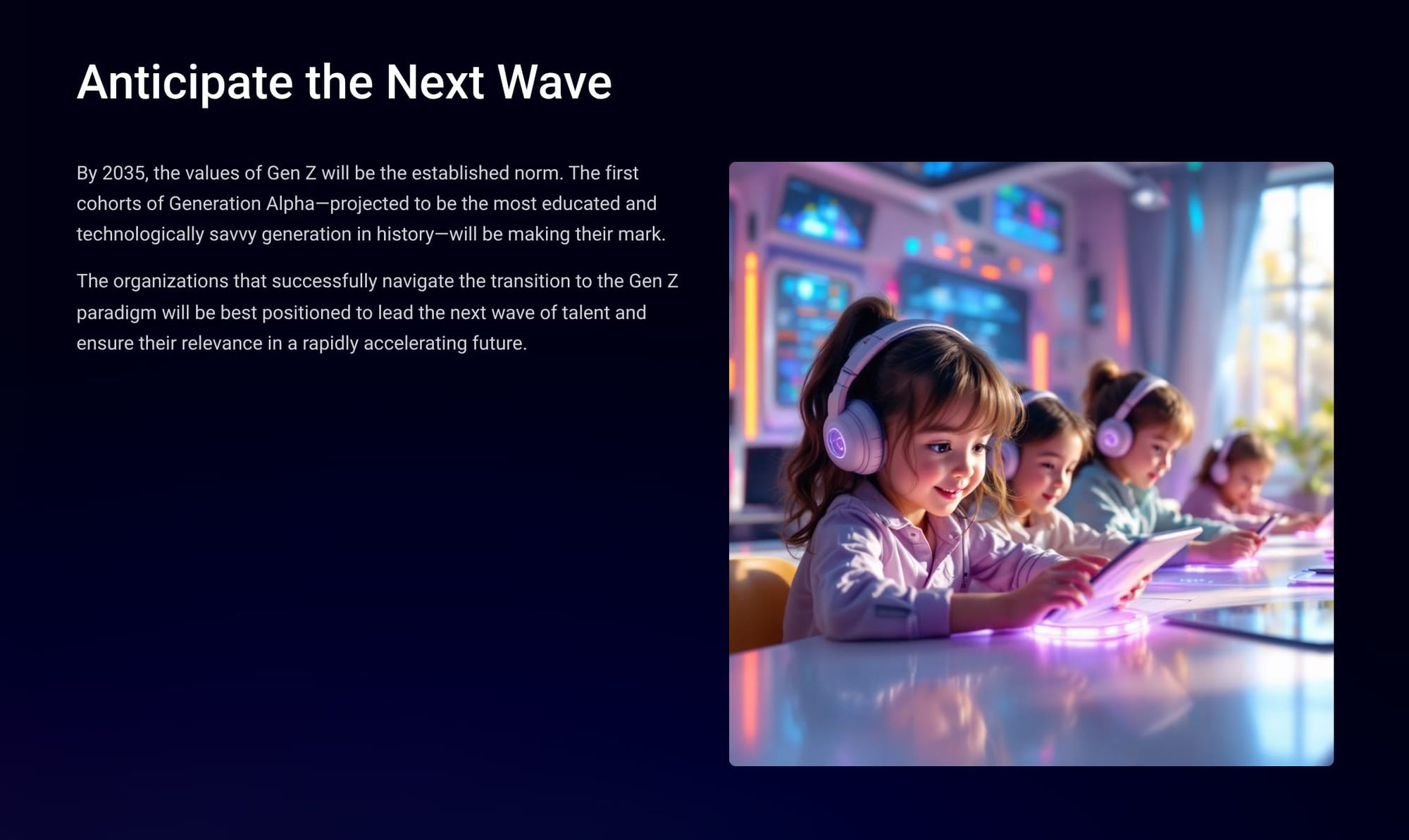
Think about that!
Surviving the Information Age, Jim's seminal work on the future of organizations and the workplace, is available for purchase at his site, books.by.jimcarroll.com

